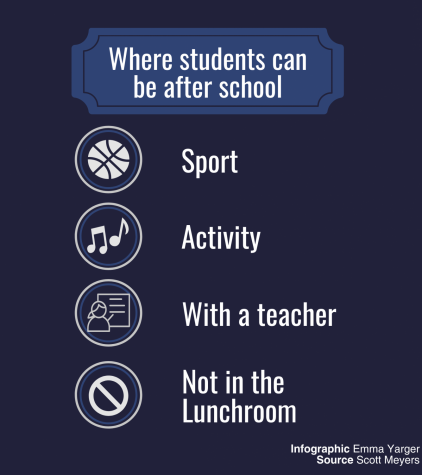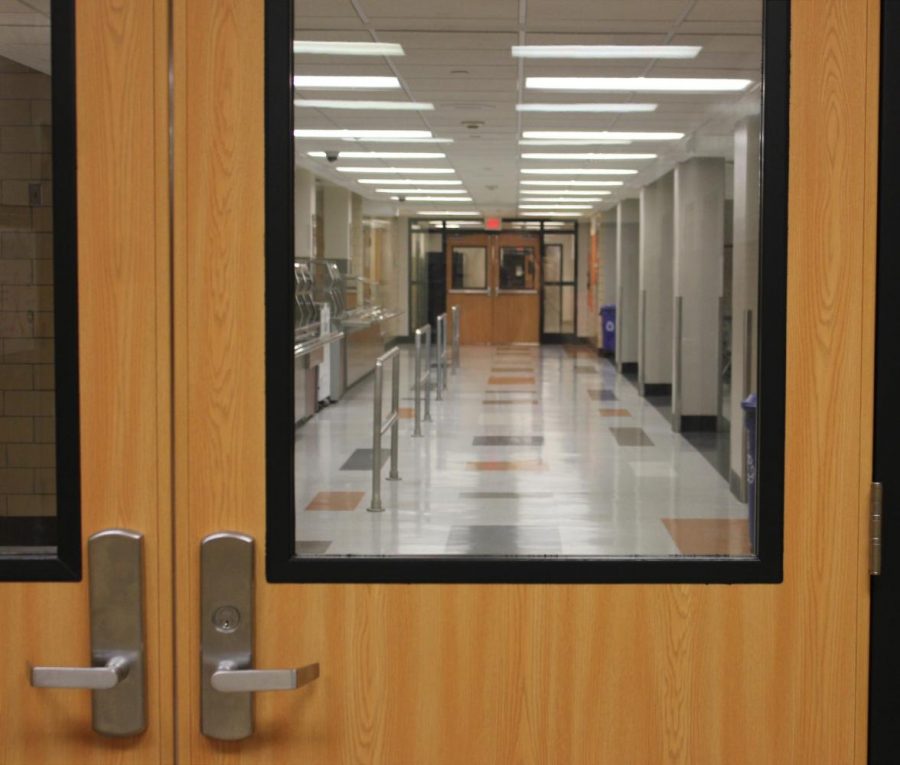New policy locks lunchroom doors
Administrative action limits study spots
Lunch doors locked after school
October 27, 2017
Wanting a calm space to study, junior Anthony David said he was irritated to find the lunchroom doors locked after school.
According to David, the lunchroom provides a safe, quiet area for students to hang out if they are not in afterschool activities.
“It’s kind of annoying (that the lunchroom is locked),” David said. “They have comfortable chairs to do homework in while I’m waiting for my sister to be done with swimming so I can drive her home.”
Freshman Mydia Murphy said she agrees the lunchroom should be available as a study space as well as a place for students to wait for their transportation.
“It would be a big plus if the doors were open after school,” Murphy said. “You (would) get to study in here when it’s quieter and wait for people to pick you up .”
.”
According to Principal Scott Meyers, the doors are locked to help the custodians and prevent unsupervised students from being disruptive.
“There are two reasons that (the lunchroom is now locked) – one is the custodians will clean the lunchroom right after (school ends),” Meyers said. “The other reason is that we have had two expensive tables that have been damaged after hours and it’s happened right when we are finishing up with the day.”
However, according to junior Gavin Charpentier, the lunchroom was nearly silent when he spent time there last year.
“I don’t see many positives to it being locked,” Charpentier said. “(If) I have to wait around for a bit I go in there and it’s always quiet. There’s always kids there, but they’re never really loud.”
Meyers said students cannot use the lunchroom as an after school study space because it does not have designated supervisor
“Technically after school the only places students should be are adult supervised situations, that’s clubs and activities (or) athletics, (students) could be working individually with a teacher,” Meyers said. “We don’t have a space right now after school that’s staffed where students can be.”
According to David, the new referendum could be a solution to these problems.
“(I would like if the school) had something like a nice area to hang out that’s open with no doors and comfortable chairs,” David said. “If they are already expanding the school, (they could add) a nice common space like the library.”
Meyers said the referendum would allow for a new cafeteria space with an adviser, meaning students could utilize the space after hours.
“One of the referendum plans would include having an open concept cafeteria that would really open up (the school) into the media center,” Meyers said. “(This could be) a place after school that could be staffed at least until six o’clock where students can stay.”




